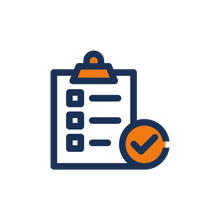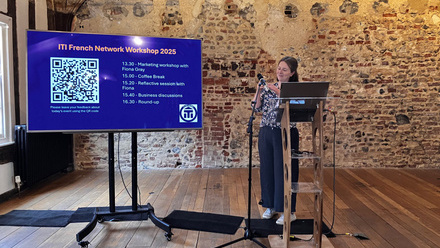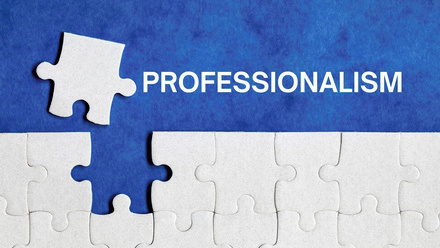CPD conversation: Interpreting skills
Continuing our look at the CPD categories in the ITI CPD logging tool, Lauren Shadi, Kasia Wawrzon-Stewart and Stephen Bostock discuss ‘interpreting skills’
What would you say are the main areas of CPD for interpreters, and can you give some examples?
Lauren: Maintaining and developing vocabulary in your ‘A’ language is particularly important if you don’t live in the country where that language is spoken on a daily basis. Public service interpreters like me also need to stay up to date with any issues and changes in public services as well as global issues and events in the country where their target language is spoken.
Kasia: Conference interpreting requires stamina – days in the booth can be long and exhausting so it’s good to have a training plan! I’d also say that along with interpreting skills (simultaneous, consecutive and sight translation) you need to keep up your business skills and IT.
Stephen: It is very important to keep aware of the cultural and social norms of the community you’re interpreting for. This is particularly relevant to British Sign Language (BSL) interpreters, because the prevalence of social media has led to a growth in ‘borrowed’ signs from other sign languages, particularly American Sign Language and International Sign.
How do you identify areas you feel are in need of improvement in your own practice, and how do you go about meeting those needs?
Lauren: If I am booked to attend a job in the criminal justice sector, I request that the nature of the charge is disclosed in advance. If it is a subject I am not too familiar with, I read articles online and listen to podcasts in both the source and target language to build up my knowledge and vocabulary and produce glossaries
Kasia: I went through this recently, drawing up a weekly ‘training plan’ focusing on five areas: consolidating my chaotic notes and creating a ‘bible’ with consecutive symbols; practising long consecutive interpreting with notes on Mondays; interpreting from German or English into Polish on Thursdays; interpreting from French into German on Fridays; and last but not least, improving my sleep habits.
Stephen: Personally, I gauge my development needs by the level of confidence I feel in accepting a booking. If I do not feel competent enough to interpret in a particular specialist area, I look for opportunities to address this knowledge gap. Peer support also helps, and being part of a local peer support group of BSL interpreters is invaluable.
What has been the most useful CPD activity you have undertaken in this field?
Lauren: I subscribe to a French podcast series called Les Pieds sur terre. If I am booked for a job in a specific field, I’ll look to see if the subject is covered in one of the podcast episodes.
Kasia: Developing a sleep routine! I’m a notorious night owl, and going to bed one hour earlier has positively impacted on my energy levels.
Stephen: Workshops run by Deaf people for BSL interpreters are the most useful CPD opportunities. Learning directly from a Deaf tutor means I learn the current signs used by the Deaf community, which improves the service I provide.
Do you have any tips or suggestions for people seekingCPD in interpreting skills?
Lauren: CPD doesn’t have to be costly, extravagant or laborious. Listening to podcasts or radio broadcasts is free. Audiovisual activities such as foreign language programmes on Netflix, either with or without subtitles, are a great way of developing your vocabulary in that language, and you can select them according to your specific interests.
Kasia: My two favourite CPD providers for interpreters are Sophie Llewellyn Smith, aka The Interpreting Coach, and the French online courses offered by Méditerranez-vous.
Stephen: Interpreting can be a lonely job so it is important to network with other interpreters, through a local peer support group or national events. Keeping up to date with developments in specialist fields is important in order to identify CPD opportunities to ensure your knowledge is on point for delivering competent interpretation in a professional manner.
This article was first published in the January-February edition of ITI Bulletin.

Remember to log your CPD using the ITI logging tool. It is quick and easy to use and provides evidence to clients and agencies of your achievements.
When you achieve the annual target of 30 hours you will be awarded a certificate and logo to use on your website and other marketing materials. MITIs and FITIs will automatically have the logo added to their Directory profile.
Never miss another Bulletin article

If you would like to read more features and articles on a wide variety of subjects relating to all aspects of the translation and interpreting industry, subscribe to ITI Bulletin. Alternatively, join ITI and get a free subscription included in your membership.






